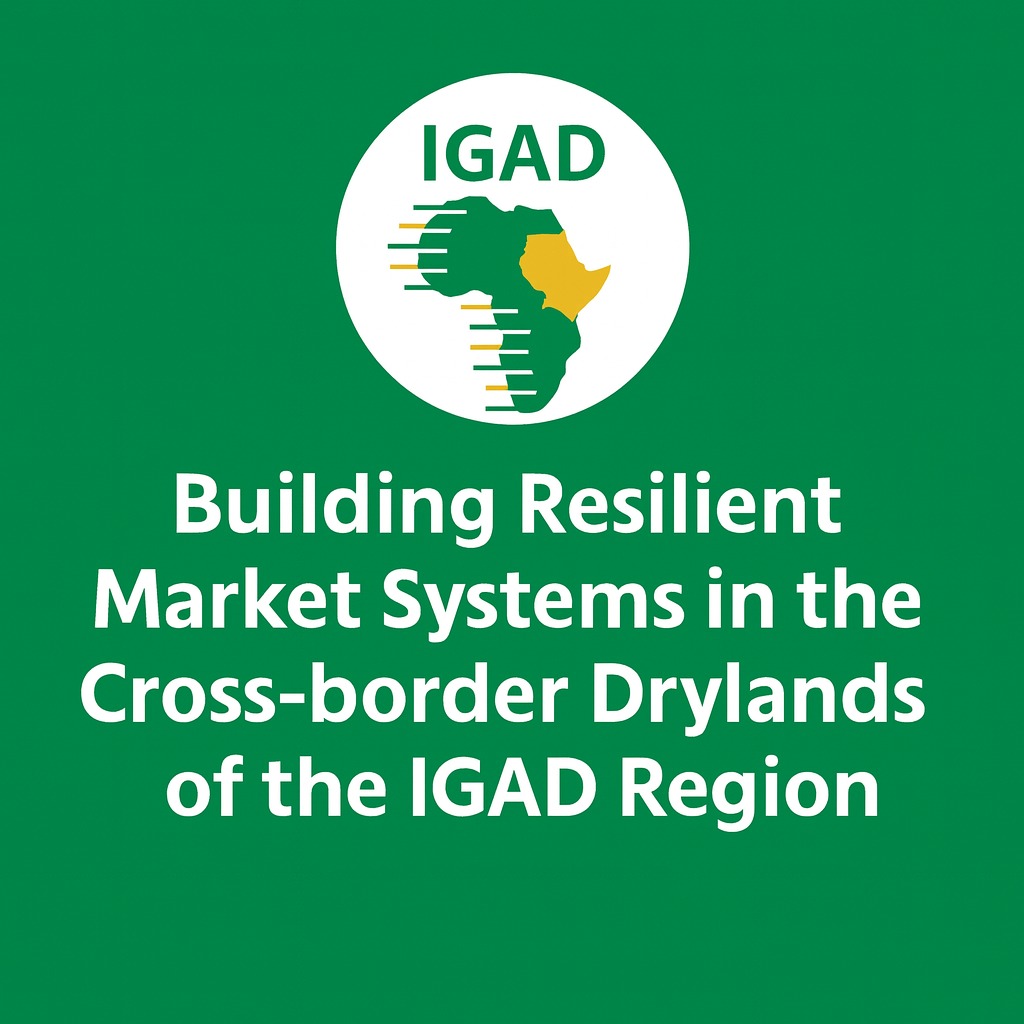For decades, the drylands of the Horn of Africa — stretching from Karamoja to Mandera — have shared more than borders. They share pastoral routes, water sources, and markets that rise and fall together. Yet for too long, droughts, fragmented policies, and weak trade systems kept these communities trapped in cycles of aid and recovery.
The IGAD Drought Disaster Resilience and Sustainability Initiative (IDDRSI), supported by USAID, was born from the 2011 Nairobi Summit’s bold declaration: to end drought emergencies once and for all. Its purpose — to transform the region’s response from crisis-driven relief to proactive, market-based resilience that strengthens both communities and systems.
Through the activity “Building Resilient Market Systems in the Cross-border Drylands of the IGAD Region,” IGAD and USAID worked to turn that vision into practice across the Karamoja (Kenya–Uganda–Ethiopia–South Sudan) and Mandera (Kenya–Ethiopia–Somalia) clusters.
Two outcomes defined this journey:
✅ Increased cross-border trade — by scaling innovations in livestock, fodder, and grain value chains; promoting risk-transfer mechanisms and digital livestock markets; and connecting pastoralists to buyers from Moyale to Dubai.
✅ Harmonized regional policies — by translating trade agreements into practice, advancing sanitary and phytosanitary standards, and promoting the free movement of goods and people under frameworks like AfCFTA and EAC/COMESA’s Simplified Trade Regime.
🟢What this looks like on the ground:
🔹 Markets that withstand drought – Livestock and fodder value chains now integrate risk transfer, insurance, and digital platforms that connect border communities from Moyale to Amudat.
🔹 Private sector partnerships – Women and youth cooperatives are turning training into profitable ventures and jobs, while harmonized trade standards ease the flow of livestock and grain across borders.
🔹 Shared prosperity through systems – Through joint trade fairs in Nairobi and Dubai, and market research missions in Asia and West Africa, communities are now competing — and thriving — together.
At its core, the effort was about linking local markets to regional systems — and resilience to opportunity.
💡 Resilience thrives where markets connect, institutions coordinate, and communities trade across borders — not just survive them.
Awira Anthony, Dereje Tadesse Wakjira, Ayan Mahamoud, Tesfaye Beshah, Mubarak Mabuya, Ameha Sebsibe, Christine Bukania, Rachel Mbaria, Dominic Kathiya Lokeris, John Kabayo, Jennifer Maurer, Ernest Njoroge, Francis Kahihu, PhD., Dorine Genga, Yasin Mahadi Sheikh Salah, Evelyn Kago, Dr. Diba Dida Wako, Shamsia Ramadhan, PhD Candidate, Mercyline Adhiambo, Mulinge Mukumbu Mukumbu, Faith Njoki Njung’e, M.A.

Want to share with a friend?
Tags:
No responses yet